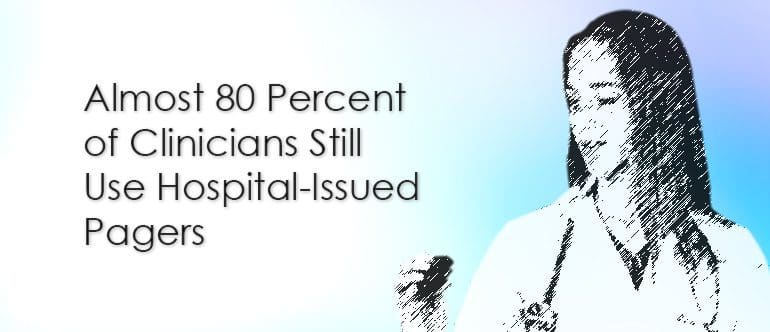Call us toll-free: 800-878-7828 — Monday - Friday — 8AM - 5PM EST

By Heather Landi for Healthcare Informatics
A study examining the communication technologies used by hospital-based clinicians found that close to 80 percent (79.8 percent) of clinicians continue to use hospital-provided pagers and 49 percent of those clinicians report they receive patient care-related messages most commonly by pager.
Communication technologies have expanded significantly to include standard text messaging and secure mobile messaging applications, yet the survey of 620 hospital-based clinicians reveals that pagers still dominate when it comes to patient-care related communications.
The survey results were published in the Journal of Hospital Medicine.
The researchers found that use of standard text messaging for patient care-related communication was also common, with 53 percent of hospital-based clinicians reporting receiving standard text messages once or more per day. Overall, 21 percent of respondents received standard text messages that included individually identifiable information, 41 percent received messages that included some identifiable information, such as patient initials, and 21 percent received messages for urgent clinical issues at least once per day.
The survey findings also reveal that one-fourth of respondents (26.6 percent) said their organization had implemented a secure messaging application that some clinicians were using. Only 7 percent of clinicians responding to the survey said their organization had implemented a secure messaging application that most clinicians were using.
The researchers wrote, “Pagers remain the technology most commonly used by hospital-based clinicians, but a majority also use standard text messaging for patient care-related communication, and relatively few hospitals have fully implemented secure mobile messaging applications.”
And, the researchers also concluded, “The wide range of technologies used suggests an evolution of methods to support communication among healthcare professionals.”
